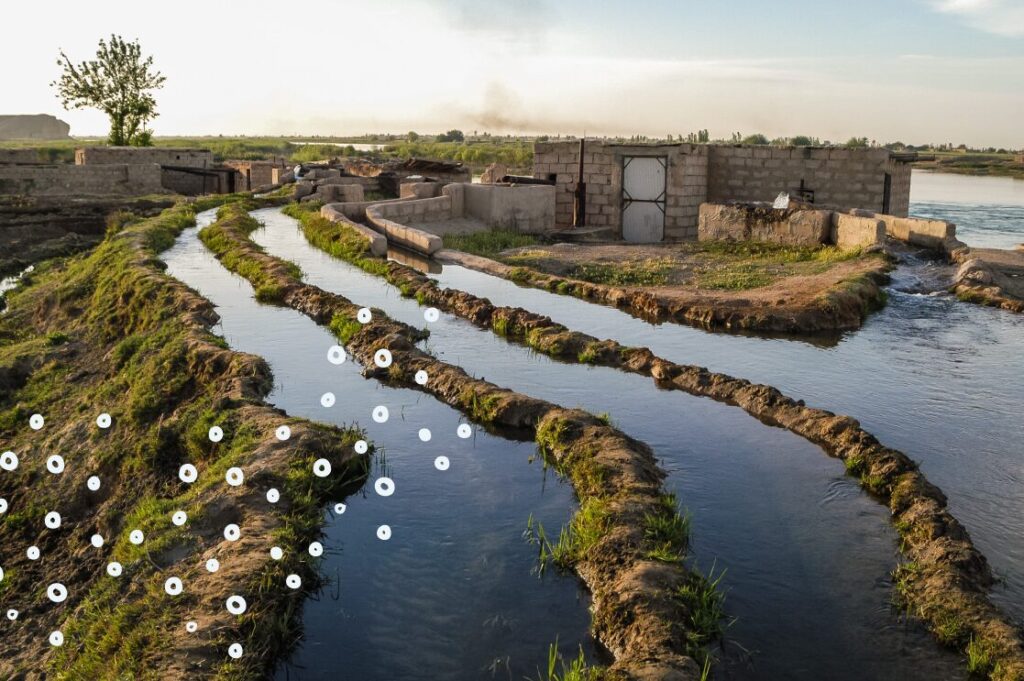- SIWI – Leading expert in water governance
- /
- Latest
- /
- Leveraging water for peace
Leveraging water for peace
Many countries are dependent on shared water resources to meet their needs. These countries, therefore, have a strong interest in cooperation around shared freshwater from rivers, lakes, and aquifers. The deepening climate crisis further necessitates cooperation and promoting good governance, to maintain peace across borders. What more can be done?

Here are five ways in which governments can step-up governance and leverage water for peace:
1. Recognize water is finite
Freshwater has transgressed its safe limit at the global scale, that impacts the integrity of earth’s systems that are essential for humanity to develop and thrive. This increases the likelihood of large-scale and irreversible environmental changes that may increase the likelihood of conflict in already vulnerable regions. Water shortages continue in several regions, and are projected to increase. It may be obvious to say that water is the source of all life but as long as both water quantity and quality drop, many fragile and conflict-affected regions will continue to suffer from unrest. Cooperation among nation states is essential to treat water as a global common, a need for all.
2. Use water as an entry point for dialogue
Tensions over shared water are unlikely to escalate into an armed conflict, on an inter-state level; however, violent conflicts over freshwater, on local levels are increasing and erode security on national and regional levels. While water is often seen as a matter for soft security and viewed as a non-military threat; being a less sensitive issue for certain regions. Countries should prioritize relationship building through dialogue over shared responsibility and use of water.
When it comes to water cooperation itself, even if a basin has an agreement or a cooperation framework, it doesn’t necessarily mean cooperation or consideration of connected issues of biodiversity loss and climate change. Recurring dialogues over water issues steer away from simply putting tick marks to agreements, and become a way to establish long-term and sustainable relationships, that can also tackle larger security issues, should hostile situations occur.
3. Build water management into climate action
This poses new challenges for management of shared waters where the impacts of climate uncertainties are mounting. In regions with low water quality and/ or quantity, climate change can multiply risks. For example, water scarcity induced by climate change can become a source of conflict with further implications for food insecurity, livelihood instability or displacement of populations.
Effective water management to tackle climate change can help regions build human security, and alleviate potential reasons for unrest.
4. Redistribute power
Power is the medium through which decision-making is expressed. Decision-making over shared resources should be made at the appropriate level of governance and by those most impacted by the outcomes of the decision.
Mechanisms are needed that give power to basin level institutions to manage and cooperate around water as a common good. River Basin Organizations are key to water governance, as they provide a platform for information sharing, dialogue, and capacity development. They are key to achieving water security, improving livelihoods, and preventing conflict. Specifically, river basin organizations do this through dialogue facilitation, negotiation, consensus building, and crisis management.
The Organizations are most effective in contributing to water diplomacy where there is a strong institutional mandate and high degree of technical capacity and local knowledge.
5. Decolonize water governance
Today’s dominant Western narrative of water management doesn’t match the pluralistic nature of problems of the world. A common example is creation of large dams to control and quantify water for human use and sanitation. Water also holds aesthetic, cultural, spiritual, relational and ecological values, and is considered a living entity among several communities.
As these values diminish for some but not for others, the approach to water management becomes less inclusive of diverse needs. To maintain peace, it is important that governments are aware and actively working to decolonize approaches to water management.

Learn more
Get a visual summary of the 5 governance strategies to leverage water for peace.
Download the factsheetHow does SIWI influence water governance to catalyze peace?
At SIWI, we facilitate dialogues, offer advice on trust-building mechanisms, and support engagements that enhance the enabling environment for transboundary cooperation.
SIWI responds to complex and interlinked challenges by creating a safe dialogue space where a broad range of actors sharing a water resource can advance knowledge on shared climate-related risks and discuss solutions.
Most recent

TIARA in Zambia: Scaling resilient rainfed agriculture in the Zambezi Basin
- Agriculture and water
- Freshwater and ecosystems/biodiversity
- Resilience through water
- Water in landscapes
- Water and climate

Why climate action must integrate water
- Water and climate
- World Water Week
- Water governance

Swedish Water House Trendspotting 2026
- Swedish Water House

SIWI Reflections 2025: When Indigenous voices shape global water dialogue
- World Water Week
- Indigenous knowledge

Bridging Borders: A Conversation with Meike van Ginneken

Why you should join this year’s high level panel at World Water Week

Bridging borders through source-to-sea management


